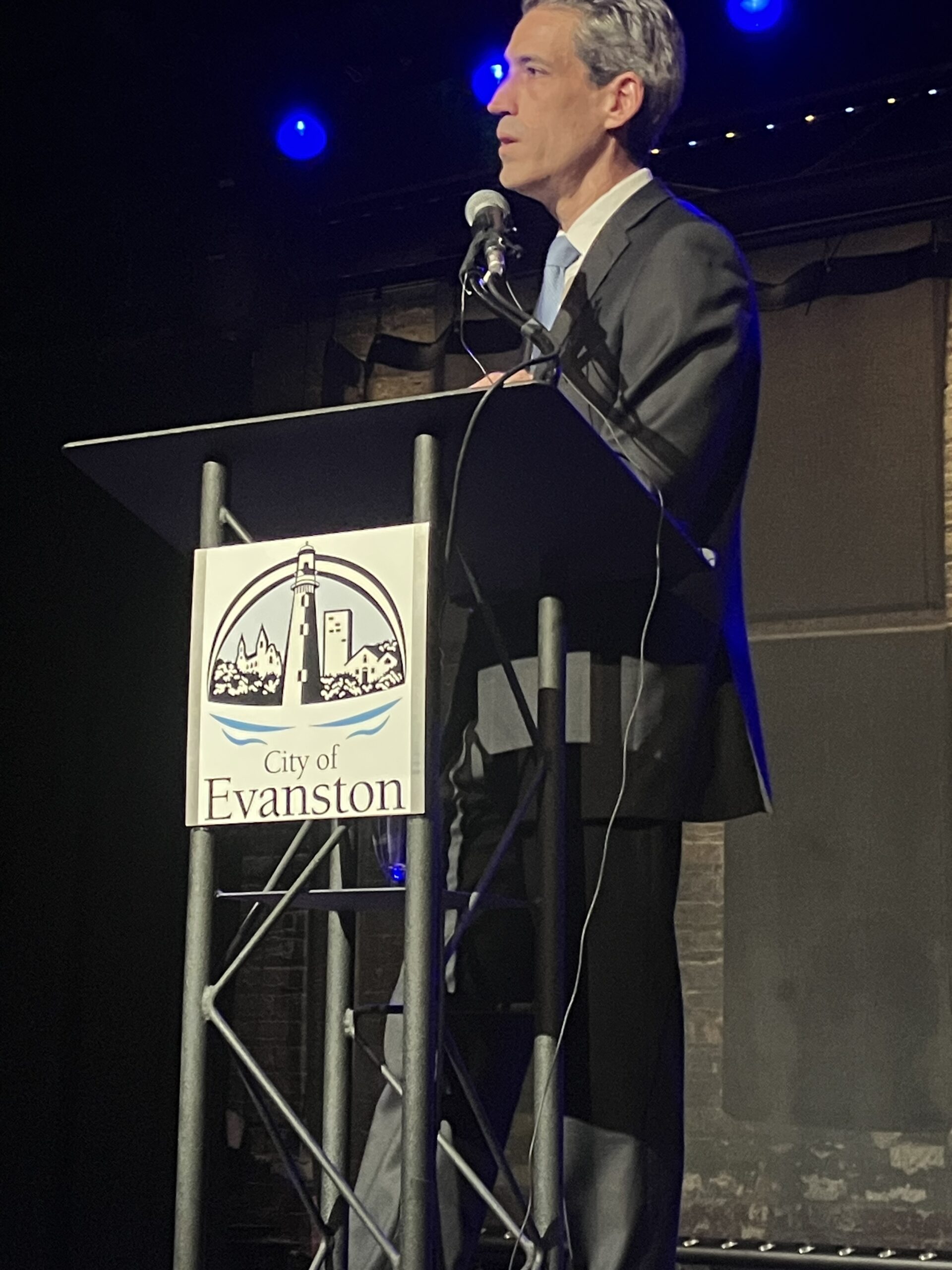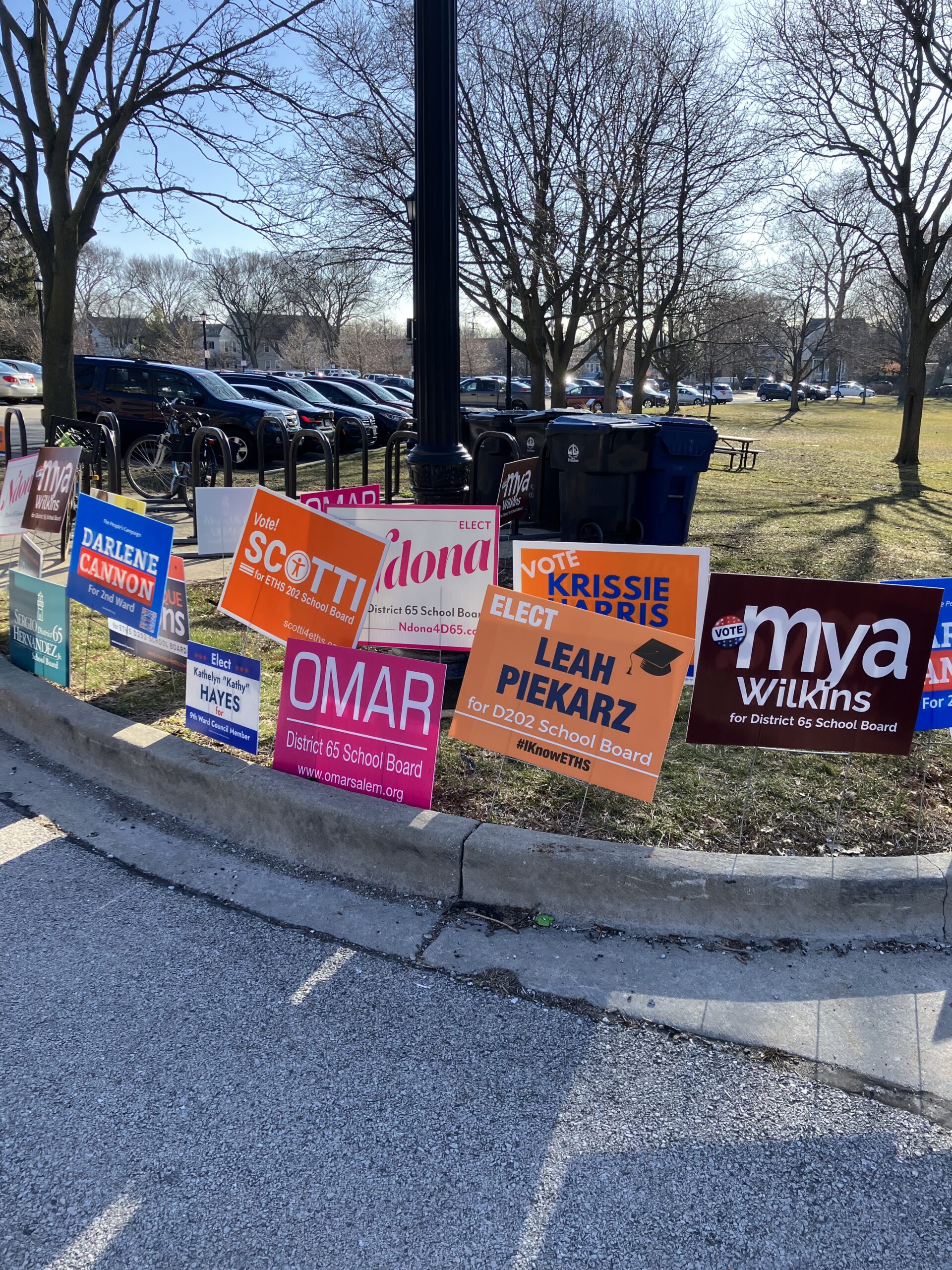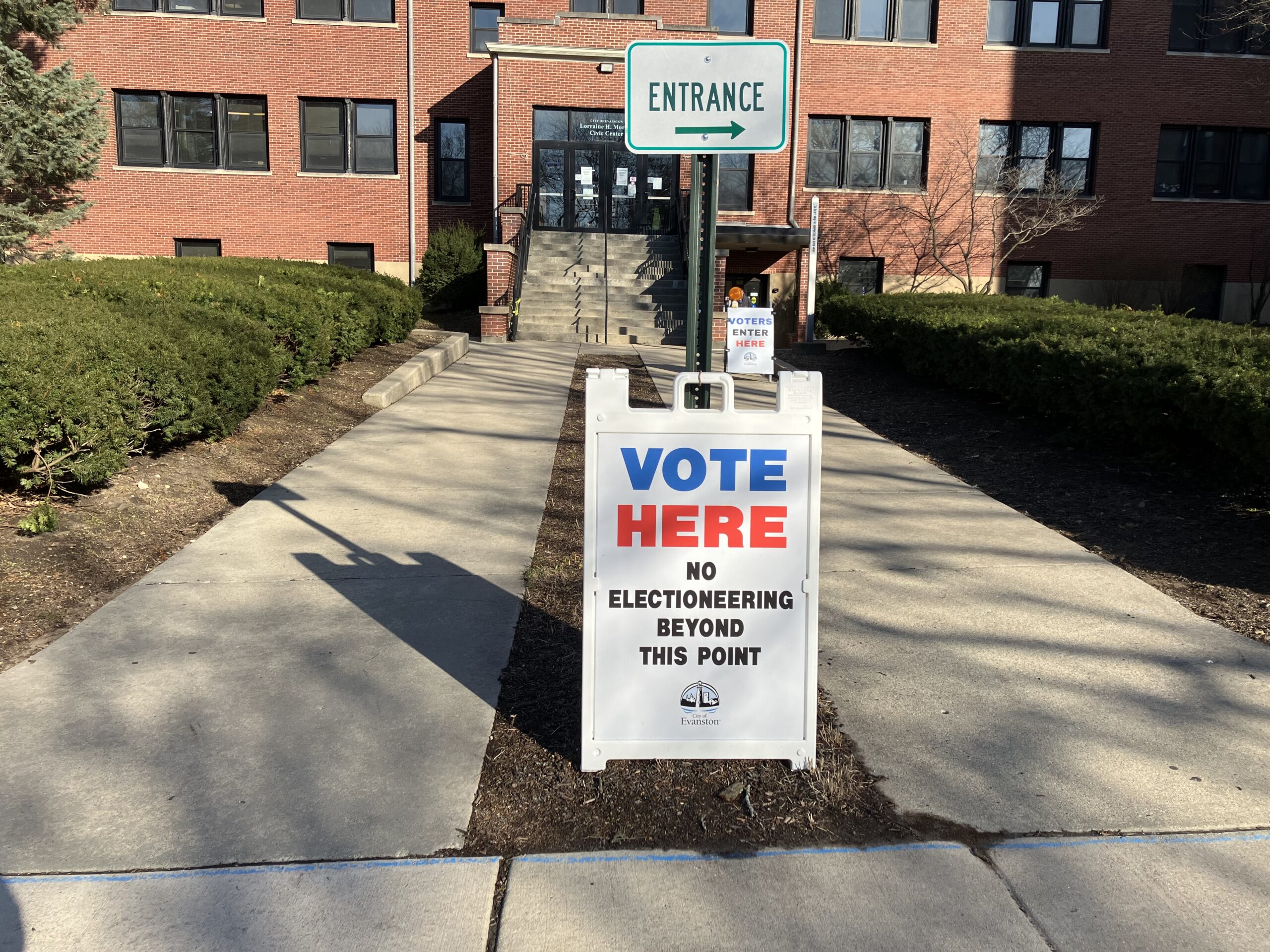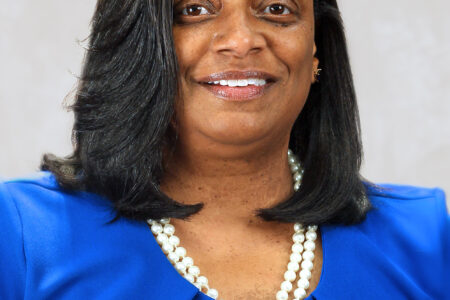
By Bob Seidenberg
Three candidates are challenging incumbent Kim Foxx in the Democratic primary for the Cook County State’s Attorney’s office on March 17, but only one has deep roots in Evanston.
“I went to Oakton School for grade school — I went to Chute Junior High and then ETHS,” said candidate Donna More, stopping in Evanston recently for the local Rotary Club meeting. “I went away for college and then I came back here to get a master’s from Northwestern.
“As I like to say, I grew up on Hecky’s “Secret Sauce,” and I was lucky enough to have Mrs. (Lorraine) Morton as my teacher in junior high, and even more fortunate to have Mayor Morton (the City’s first African-American mayor) as my mentor throughout my career.”
Ms. More, a graduate of the Evanston Township High School Class of 1975, is making a second bid for the State’s Attorney’s office.
The other challengers to Ms. Foxx are Bob Fioretti, a former Chicago alderman, and Bill Conway, a one-time assistant state’s attorney and adjunct financial professor at DePaul University.
Ms. More is generally regarded as having an uphill fight in the race against Ms. Foxx, who has received strong backing from the Democratic Party establishment despite criticism she received in her handling of the Jussie Smollett affair; and Mr. Conway, running an aggressive TV ad campaign, and receiving backing from his father, William Conway, one of the co-founders of the Carlyle Group, one of the world’s largest private-equity firms.
With Ms. Foxx receiving endorsements from party favorites U.S. Rep. Jan Schakowsky, U.S. Senator Dick Durbin and others, she overwhelmingly won the Democratic Party of Evanston’s backing at the party’s Feb. 9 endorsement session.
Ms. More received a major boost recently, though, winning the endorsement of the Chicago Tribune, which contrasted the judgement Ms. Foxx showed in the Smollett case with the balanced approach the paper believes Ms. More would bring to the office.
Hecky’s in her corner
Locally, businessman Hecky Powell is a More supporter too, throwing a fundraiser for her at Koi Restaurant earlier this year and running political banners promoting Ms More as “one of Evanston’s own” on the side of his barbecue business at Green Bay Road and Emerson Street.
“I support Donna because Donna is from our community and her mother and father are from our community,” Mr. Powell explained when asked about his backing.
Career-wise, “she’s done everything our community asks for our young people to do,” Powell said.
“She’s gone out, made a name for herself as a top-notch attorney. Besides that, she has been a state’s attorney, she’s tried cases; she’s been in the U.S. Attorney’s Office. She grew up in a diverse community — so she can relate to all kinds of people.”
“All people have to do is compare her qualifications to the other people running and she comes out way ahead of them,” he maintained.
Then why didn’t Ms. More receive more support from her hometown party? Mr. Powell was asked.
“Donna is independent. She’s not owned by the power structure. She’s independent,” Mr. Powell said.
In an interview at Cupitol Coffee & Eatery, edited for publication, Ms. More was asked about what things are different this time from when she ran in 2016.
A. Well, two things: One, is I thought when I ran last time the office (then headed by Anita Alvarez) had gone too much to convictions at any cost, and (the philosophy that) only convictions matter. And now we’ve gone to the other extreme of not charging or under-charging, and that’s not where the criminal justice system should be. The criminal justice system is one of balance. That’s one of the reasons I’m running again. But the other thing that I ran on last time was you need to make decisions on the law and not on politics. And you know we had that happen with our former State’s Attorney. We’re having decision made on politics with our current State’s Attorney.
“And the other issue I had (with Foxx) is she didn’t have the experience. She was a Machine candidate. She had never been in a felony trial courtroom; I think she did closing arguments in one felony case. You’re asking your 700 assistants to do their job every day without providing the leadership that you’ve walked a mile in their shoes.
(Ms. Foxx maintained in a 2016 Chicago Tonight debate that she had been involved in “about 100” trials during her 12 years as assistant state’s attorney, responding to Ms. Alvarez’s assertion the total had been four. Further, “numbers are not the issue,” she said at that time. “Experience and judgement,” are.)
Ms. More maintained that Mr. Conway also has the same lack of experience.
A. I think he practiced law a sum total of five years and he hasn’t done that in the last decade. You know, he never tried a violent felony – so why should we switch one inexperienced prosecutor and lawyer for another? And his claim to fame is he is going to root out corruption. Well, his family’s company (the Carlyle Group), is the master of the pay to play…so how’s he going to root it out?”
(Conway has said he spent his initial time in the State’s Attorney’s Office in misdemeanor court, then moved to the financial corruption division, trying 108 cases. He has said that that he plans to recuse himself from matters related to his father’s business.)
Q. What about your own background?
A. I graduated from Georgetown Law School. I came back home to be a prosecutor. I was a supervisor in the appellate division. I went to 26th and California where I was in two or three different courtrooms and I tried violent crimes. I was a supervisor in Felony Review, which is the charging mechanism in the office, one of the most important divisions, I think. Then I left there and went to the U.S. Attorney’s Office in the criminal division where I tried white collar complex crimes and I left there to be the first general counsel with the Illinois Gaming Board. So I created the regulatory system that now governs a multi-billion dollar industry in Illinois and has created thousands of jobs. Then I’ve been in private practice in some form or another since then.
Q. The North Suburban Association of Chiefs of Police last year issued a no-confidence vote of Foxx’s handling of the Jussie Smollett case, stressing that their censure also had to do with that office’s non prosecution of certain so-called “lower level” offenses, such as retail crimes under $1,000, as a felony, and a slackening in prosecution of driving on suspended licenses and unlawful use of weapons cases.
A. You cannot announce outright you will not prosecute large areas of the criminal code. This is a case-by-case thing – you always have prosecutorial discretion, either to reduce a charge or not to prosecute. But when you make a public pronouncement, then you just encourage people to break the law. (On the suspension of licenses issue) I don’t think we should be trying to keep people from having a way to get to work on a suspended license. On the other hand, you have to look at the whole background of the person, because I think the family of the state trooper (Gerald Ellis) who was killed (in a vehicle collision involving a wrong-way driver) by someone (with multiple driving-while-under-the-influence arrests) and a suspended license, would tend to argue with you. You know you can’t make these generalizations because that’s not what the system is all about. The system is you have to have the judgment to make the right call on each case. And the problem is, when you blow a big case, like Jussie, and it’s only big because he was famous, then people won’t trust you to do the right thing on on the smaller, less high profile type of cases.
Q. What are some of your priorities for office?
A. I have a bunch of priorities. One is to restore leadership in the office to my assistant state’s attorneys. You know, Ms. Foxx recently said she had more in common with defenders going through the system than with her state’s attorneys. So I want to bring leadership. I want my prosecutors in the court room to have discretion and I want to back them up and I want to give them credit when they win cases. And I’m happy to take the heat if we (lose) cases.
Second, I want to restore the relationship between the State’s Attorney’s office and first responders (police and fire) because I think they’ve lost trust in the office. So I need to make sure we have a working partnership. That doesn’t mean I’m going to give somebody a pass if they break the law, but it means I want them to know that I want to have a partnership.
And the third thing is accountability. You can’t have a criminal justice system when you don’t hold people accountable. So I don’t care if it’s theft or murder, I’m going to hold people accountable. And we’re going to recommend appropriate penalties in those cases; and the law allows us to distinguish how we handle those cases.
Q. The Smollett case?
A. You know the Jussie Smollett case has ramifications on all sides. One of the ramifications is the rich and famous and connected get treated different. And I think people are sick of that — that’s kind of in your face what our State’s Attorney did. This shouldn’t be a political office; this should be an office about an experienced working lawyer who will be our lawyer. Because that’s what you are. I mean, I get hired every day to be someone’s lawyer.
Sent from my iPhone



